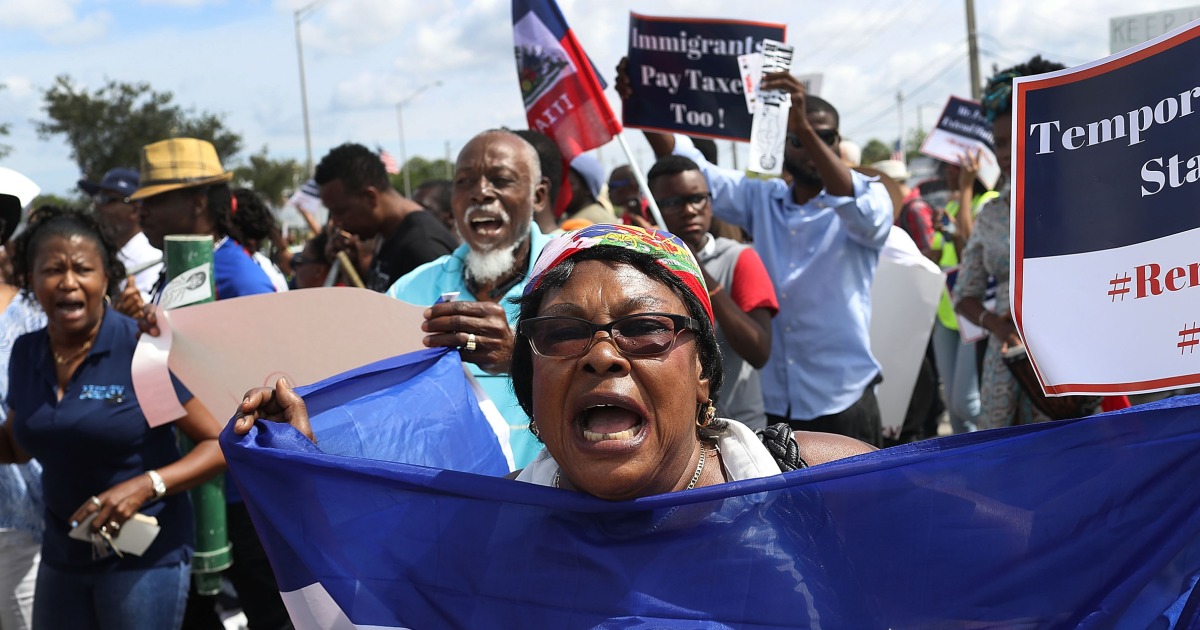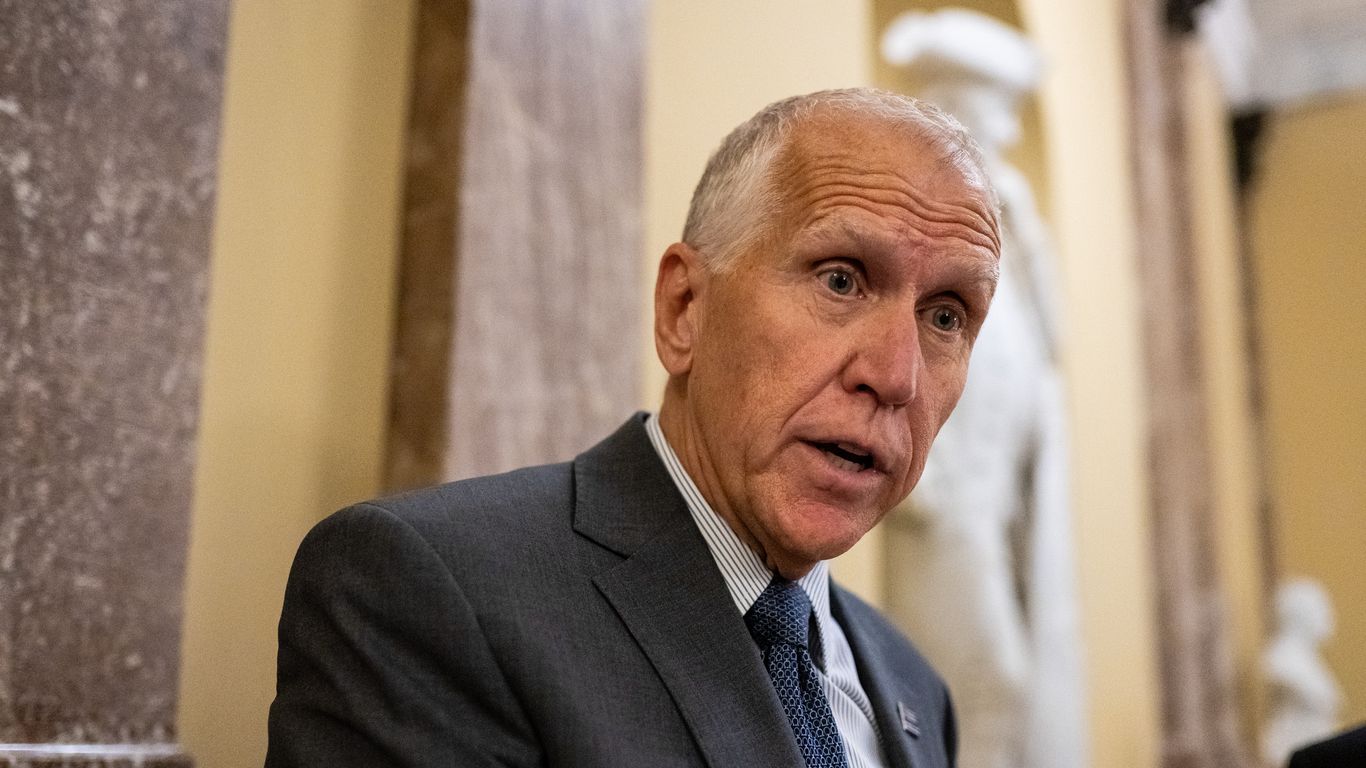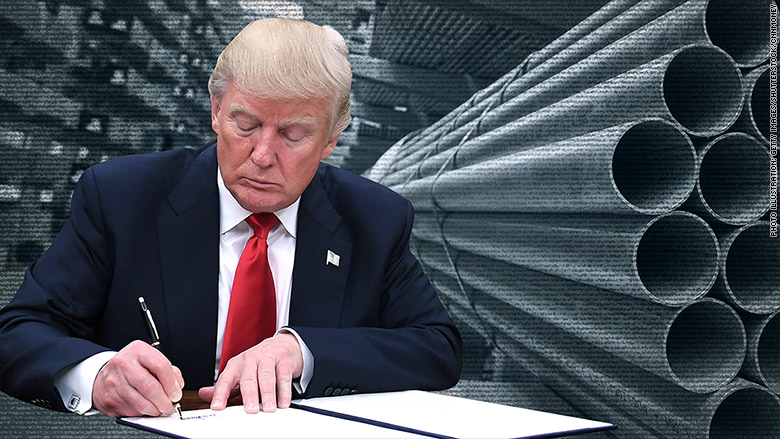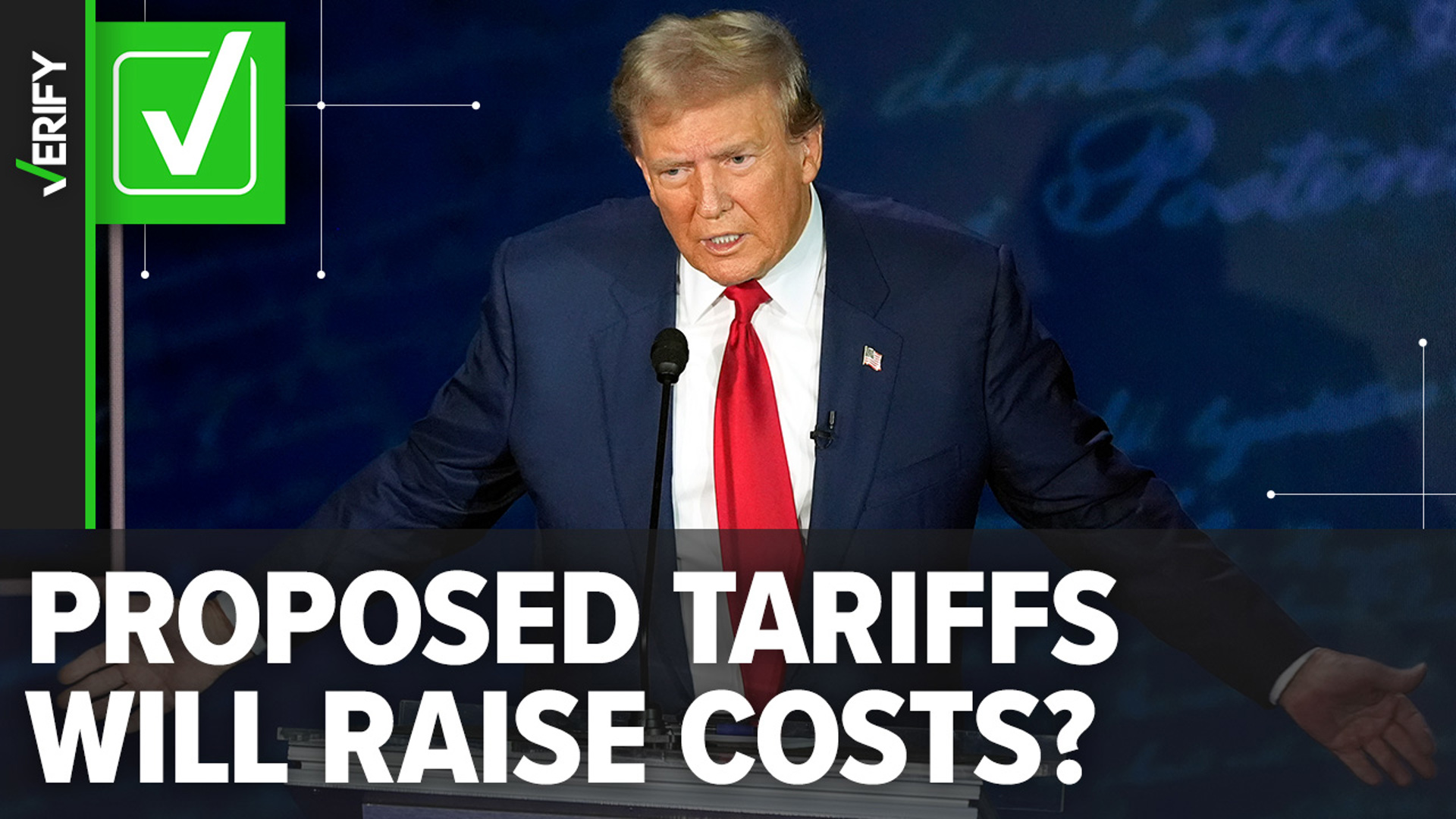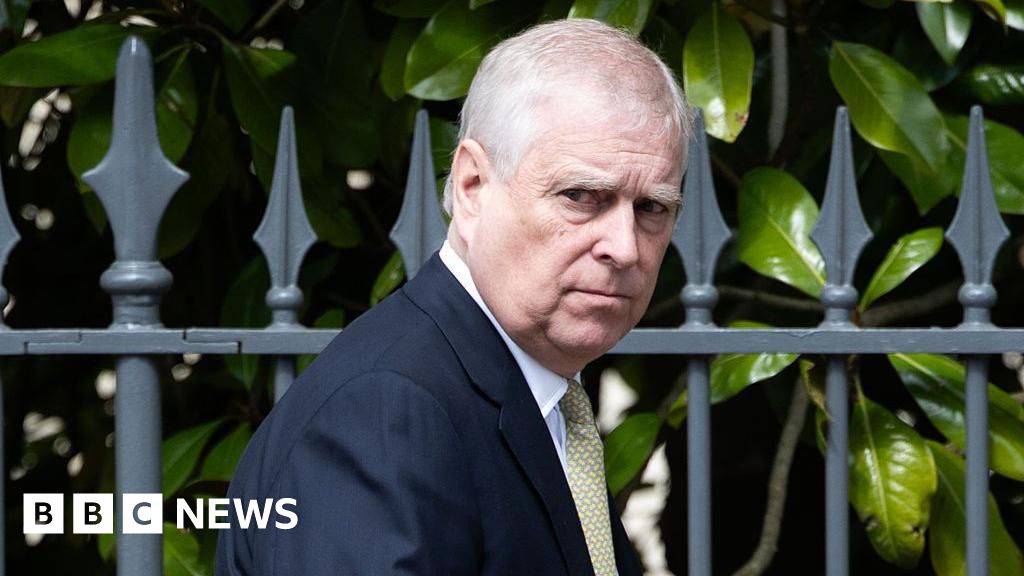Trump's Asia-Pacific Tariffs Deadline Sparks Uncertainty

Introduction
The Asia-Pacific markets are trading mixed as investors await the deadline for higher tariffs set by U.S. President Trump. With the Independence Day public holiday on Friday, U.S. markets will be closed, leaving investors on edge with the looming deadline.
Background
The Trump administration's sweeping tariffs have been a hot topic in recent months, with a federal appeals court granting the administration's request to keep the tariffs in effect for now. The court has also agreed to fast track its consideration of the case, adding to the uncertainty surrounding the tariffs.
Commerce Secretary Howard Lutnick has downplayed a pair of recent court decisions that declared the bulk of the tariffs unconstitutional, stating that they are "not going away." This comes after Trump's promise to hike steel and aluminum tariffs to 50% starting on Wednesday, which could have a major impact on businesses and the global economy.
Current Scenario
The upcoming G-7 meeting in Canada will likely be dominated by discussions on tariffs, with leaders hoping to persuade a mercurial U.S. president to preserve long-standing alliances and calm a jittery global market. Trump's recent admonishment of Walmart for warning of potential price increases due to the tariffs has also caused concern for businesses and consumers.
Meanwhile, in the Middle East, Trump's visit has been met with both praise and controversy. His decision to bypass Israel on his trip has been seen as a rift with Prime Minister Benjamin Netanyahu, who is currently facing corruption charges. Trump's meeting with Syrian President Ahmad al-Sharaa will also be a key moment, as he goes face-to-face with an onetime insurgent leader who spent years imprisoned by the Syrian regime.
Conclusion
As Trump continues on his Middle East tour, experts are questioning the impact of his visit and the potential opportunities for Israel to act. While Trump has rejected America's "interventionist" past in the region, he will be visiting a U.S. military installation in Qatar, further adding to the uncertainty surrounding the future of U.S. involvement in the region.
As the deadline for higher tariffs approaches, the global market is on edge, with many waiting to see the outcome of Trump's visit to the Middle East and the G-7 summit in Canada. The impact of these events on the global economy and businesses remains to be seen, but it is clear that they will have a significant impact on the future of trade and international relations.
About the People Mentioned
Donald Trump
Donald John Trump, born June 14, 1946, in Queens, New York, is an American businessman, media personality, and politician. He graduated from the University of Pennsylvania’s Wharton School in 1968 with a degree in economics. In 1971, he took over his family’s real estate business, renaming it the Trump Organization, through which he expanded into building and managing skyscrapers, hotels, casinos, and golf courses. Trump gained widespread fame as the host of the reality TV show *The Apprentice* from 2004 to 2015, which helped establish his public persona as a successful entrepreneur. Trump entered politics as a Republican and was elected the 45th president of the United States, serving from 2017 to 2021. His presidency was marked by significant policy actions including tax cuts, deregulation, the appointment of three Supreme Court justices, renegotiation of trade agreements (notably replacing NAFTA with the USMCA), and a focus on immigration control including border wall expansion. He withdrew the U.S. from international agreements such as the Paris Climate Accord and the Iran nuclear deal, and engaged in a trade war with China. His administration’s response to the COVID-19 pandemic was criticized for downplaying the virus’s severity. Trump was impeached twice by the House of Representatives—first in 2019 for abuse of power and obstruction, and again in 2021 for incitement of insurrection—but was acquitted by the Senate both times. After losing the 2020 election to Joe Biden, Trump challenged the results, culminating in the January 6, 2021, Capitol riot. He remains a central figure in American politics, having won the 2024 presidential election and returned as the 47th president in 2025, continuing to promote policies aimed at economic growth, border security, and military strength[1][2][3][4].
Howard Lutnick
Howard W. Lutnick is an American businessman and the current U.S. Secretary of Commerce, appointed in 2025. He is best known as the chairman and CEO of Cantor Fitzgerald, a leading financial services firm, as well as chairman and CEO of BGC Group and Newmark Group, major players in brokerage, financial technology, and commercial real estate. Born on July 14, 1961, Lutnick graduated from Haverford College with a degree in economics and joined Cantor Fitzgerald in 1983, rising to president and CEO by 1991 and chairman in 1996. Lutnick's career was profoundly shaped by the September 11, 2001 terrorist attacks, which destroyed Cantor Fitzgerald's headquarters in the World Trade Center, killing 658 of its 960 New York employees, including Lutnick’s brother. In response, he led the company’s rebuilding efforts and founded the Cantor Fitzgerald Relief Fund, which has raised over $180 million to support victims' families and aid disaster relief worldwide. His resilience earned him recognition such as Financial Times’ Person of the Year in 2001 and Ernst & Young’s U.S. Entrepreneur of the Year in 2010. Under Lutnick’s leadership, Cantor Fitzgerald and its affiliates employ more than 10,000 people globally and hold extensive financial and real estate assets. He has driven strategic growth through acquisitions and innovation, including the 2004 spin-off of BGC Partners and the 2011 acquisition of Newmark, which later went public. Politically, Lutnick shifted from Democrat to Republican, closely aligning with Donald Trump. In 2024, he co-chaired Trump’s presidential transition team and was nominated by Trump as U.S. Secretary of Commerce, confirmed by the Senate in early 2025. In this federal role, Lutnick oversees economic data, trade enforcement, industrial policy, and climate monitoring, supporting policies like tariffs and domestic industry investment. Lutnick is also active in philanthropy and serves on the board of the National September 11 Memorial & Museum[1][2][3][5][6][7][8].
Benjamin Netanyahu
Benjamin Netanyahu, born on October 21, 1949, in Tel Aviv, Israel, is a prominent Israeli politician and diplomat who has served as Prime Minister of Israel three times (1996–1999, 2009–2021, and from 2022 onwards). He began his career in the Israeli military's special operations and later transitioned into politics in the late 1980s, joining the Likud party[1][2]. Netanyahu first became prime minister in 1996, during which time he signed the Hebron and Wye Accords, advancing peace efforts with the Palestinians. His administration focused on economic reforms such as government privatization, liberalizing currency regulations, and reducing deficits. After losing the 1999 election, he served as foreign minister and finance minister before reclaiming the Likud leadership in 2005[1][3][4]. Returning as prime minister in 2009, Netanyahu formed a national unity government and proposed a demilitarized Palestinian state recognizing Israel as the Jewish state, emphasizing security concerns. His tenure was marked by fluctuating peace negotiations with the Palestinians and contentious policies including settlement expansions. He also maintained a hawkish stance on Iran and supported the Iraq war[1][3][5]. In 2022, Netanyahu made a political comeback as prime minister, leading a coalition that included far-right parties. His leadership during this period has been pivotal amid the 2023–2024 Israel-Hamas conflict, with significant domestic and international implications[2]. Netanyahu is Israel’s longest-serving prime minister and remains a central figure in Israeli politics, known for his strong security policies, economic reforms, and complex role in the Israeli-Palestinian conflict. His career has been marked by both political resilience and controversy, reflecting his enduring influence on Israel’s domestic and foreign affairs[2][3][5].
Ahmad al-Sharaa
Ahmed al-Sharaa, born on October 29, 1982, in Riyadh, Saudi Arabia, is a Syrian politician and former rebel commander. He is known by his nom de guerre Abu Mohammad al-Julani. Al-Sharaa's early life was marked by his involvement with extremist groups; he joined al-Qaeda in Iraq before the 2003 invasion. He was captured by American forces in 2006 and held until 2011, when he was released during the Syrian Revolution. Upon his release, al-Sharaa played a pivotal role in the Syrian Civil War by forming the al-Nusra Front in 2012, initially as an al-Qaeda affiliate. However, he severed ties with al-Qaeda around 2016 and transformed the group into Hayat Tahrir al-Sham (HTS), which became a dominant force in Syria's opposition. Under his leadership, HTS focused on local governance and combating other extremist groups like ISIS and al-Qaeda. Al-Sharaa's efforts led to the establishment of the Syrian Salvation Government in Idlib, which managed local institutions and trade. In 2024, al-Sharaa's forces were instrumental in toppling the Assad regime, ending decades of rule by the Assad family. Subsequently, he was appointed as the de facto leader of Syria before being formally elected as president in 2025. His presidency marks a significant shift in Syria's political landscape, with al-Sharaa attempting to rehabilitate his image and engage internationally. He has renounced transnational jihadism and seeks to improve relations with Western nations while focusing on governance and minority protection in Syria. Al-Sharaa's presidency is seen as a critical moment in Syria's transition, with ongoing challenges related to rebuilding and international recognition.
About the Organizations Mentioned
Walmart
Walmart, founded in 1962 by Sam Walton, has grown from a single discount store in Arkansas to become the world’s largest retailer, with a commanding presence in both physical and digital retail landscapes[3]. As of fiscal year 2025, Walmart operates over 10,750 stores and serves approximately 270 million customers each week across 19 countries, employing about 2.1 million associates worldwide[1][2][4]. The company reported $681 billion in revenue for 2025, reflecting a 5.1% increase from the previous year and an 8.6% rise in operating income, underscoring its robust financial health and ongoing expansion[1][4][6]. ## What Walmart Does Walmart is a leader in hypermarkets and discount retail, offering a vast range of products—from groceries and apparel to electronics and home goods—through its extensive network of physical stores, e-commerce platforms, and mobile apps[2][3]. Its business is organized into three main segments: Walmart U.S., Walmart International, and Sam’s Club, a members-only warehouse club[3][5]. The company’s mission—“to help people save money and live better”—drives its focus on everyday low prices, convenience, and customer-centric innovation[2][5]. ## History and Key Achievements Walmart’s journey from a single store to a global powerhouse is marked by relentless expansion, operational efficiency, and technological adoption[3]. Key milestones include the launch of Walmart Supercenters in the 1980s, international expansion beginning in the 1990s, and the rapid growth of its e-commerce business in the 2010s and beyond[3]. Today, online sales account for 18% of Walmart’s revenue, fueled by four consecutive quarters of 20% growth[1]. The company’s retail media network, Walmart Connect, has also surged, with ad revenue up 50% in a recent quarter
U.S. Military
## The U.S. Military: A Comprehensive Overview The **U.S. Military**—comprising the Army, Navy, Air Force, Marine Corps, Space Force, and Coast Guard—is the world’s most advanced and powerful armed forces. Its core mission is to defend the United States, its citizens, and its interests, both at home and abroad. The military also plays a vital role in disaster relief, humanitarian aid, and international peacekeeping. With over 1.3 million active-duty personnel and a defense budget exceeding $800 billion annually, it is a cornerstone of U.S. national security and a major driver of global stability. ### Historical Roots The U.S. Military traces its origins to the Continental Army, established in 1775 during the American Revolution. Throughout the 19th and 20th centuries, the military expanded dramatically, playing pivotal roles in the Civil War, both World Wars, and the Cold War. The National Security Act of 1947 reorganized the military into the Department of Defense, fostering greater coordination among the branches and establishing the Air Force as an independent service. ### Key Achievements The U.S. Military has achieved numerous technological and strategic milestones, from the development of nuclear weapons and intercontinental ballistic missiles to the creation of the global positioning system (GPS) and stealth technology. It led the Allied victory in World War II, helped contain communism during the Cold War, and has been instrumental in counterterrorism operations post-9/11. Its role in NATO and other alliances has helped maintain international order for decades. ### Current Status Today, the U.S. Military is a global leader in defense innovation, investing heavily in artificial intelligence, cybersecurity, unmanned systems, and space exploration. The establishment of the Space Force in 2019 underscores its commitment to securing the final frontier. The military is also a major employer and economic force, with defense contracts supporting thousands of businesses and driving technological advancements in sectors like aerospace, computing, and
Qatar
Qatar is not an organization but a country located in the Middle East, known for its significant contributions to global business, technology, and social development. Here is a comprehensive summary of Qatar's key aspects: ## Overview Qatar, officially the State of Qatar, is a constitutional emirate with a hereditary monarchy. It is ruled by the Āl Thānī family, with the current emir being Sheikh Tamim bin Hamad Al Thani. The country's government structure includes a Council of Ministers and an advisory Shura Council, although the latter's electoral component was abolished in 2024[4]. ## History Qatar's history is marked by its transformation from a small tribal state to a major economic power. After World War II, oil revenues significantly increased, leading to rapid modernization and political stability within the ruling family[4]. In 2003, a new constitution was approved, which initially provided for the election of the Shura Council, but these elections were repeatedly delayed until 2021 and later abolished[4]. ## Key Achievements - **Economic Diversification**: Qatar has successfully diversified its economy beyond oil and gas, with non-oil sectors contributing over 60% of GDP in 2024[8]. Tourism, logistics, and financial services are key drivers of this diversification. - **Global Events**: Qatar hosted the FIFA 2022 World Cup, which was a significant achievement in terms of infrastructure development and international visibility[8]. - **Investment and Development**: The government has allocated substantial funds for major projects, including education and healthcare, with a budget of $5.3 billion for education and $6 billion for health in 2025[2]. ## Current Status Qatar continues to invest in strategic sectors like education, healthcare, and environmental sustainability. The country is hosting the Second World Summit for Social Development in 2025, focusing on inclusive social development[6]. Its GDP per capita is among the highest

